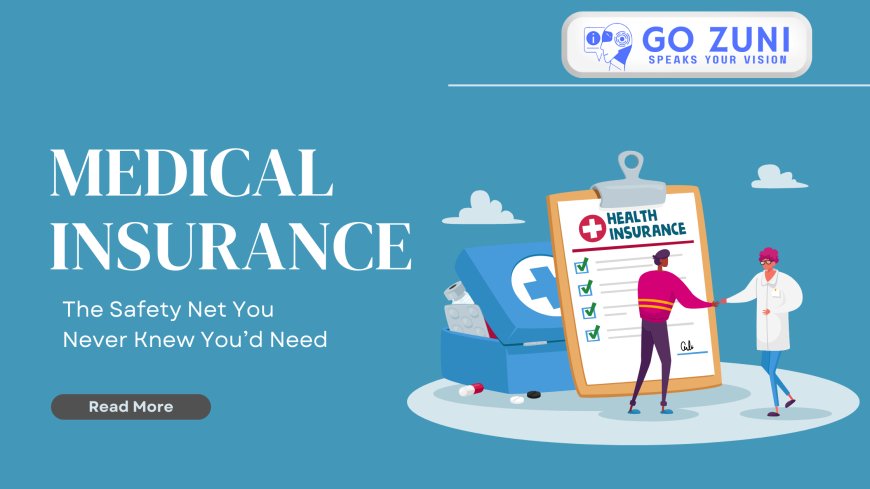The Day I Realized My Health Plan Wasn’t Enough
A few years ago, while working on a deadline-heavy project as a junior developer, I ended up with a persistent stomach issue that wouldn’t quit. Between stand-ups, code reviews, and late-night debugging, I kept putting off a doctor’s visit. When I finally did see someone—through my basic health plan—it took three weeks to get an appointment and another two for tests.
That whole experience made me rethink what “coverage” really meant.
I’ve since moved up in my IT career (and learned a thing or two about burnout and boundaries), but one thing that stuck with me is this: good health shouldn’t come with a waiting list. That’s when I started looking into private medical insurance—and honestly, it changed everything about how I approach my health.
If you’re in tech or just someone juggling a fast-paced lifestyle, here's a clear, down-to-earth breakdown of how private medical insurance works, what it covers, and why it might be worth adding to your benefits wishlist.
So, What Is Private Medical Insurance?
Let’s break it down: medical insurance, in general, helps cover the cost of healthcare services—doctor visits, treatments, surgeries, tests, and more. Now, private medical insurance is a type of plan that gives you access to private hospitals, quicker appointments, shorter waiting times, and a wider choice of specialists.
Think of it as upgrading your healthcare experience in the same way you might go from a basic shared hosting server to your own cloud instance—more control, better performance, and way less waiting around.
In contrast to public systems (like the NHS in the UK or Medicaid in the US), private plans are either paid for individually, by an employer, or both. The more comprehensive the plan, the more you can expect to pay—but that also means fewer delays and more personalized care.
What Does Private Medical Insurance Actually Cover?
While it varies from provider to provider, here are some of the core things most private medical insurance plans tend to cover:
- Consultations with specialists (without needing endless referrals)
- Diagnostic tests and scans like MRIs or blood work
- Hospital treatment, often in private rooms
- Surgeries—from minor outpatient procedures to more complex operations
- Mental health support, which is increasingly included in modern plans
Some plans also offer add-ons like dental, optical, physiotherapy, or maternity services. It’s a bit like customizing your dev environment—you can build the coverage that suits your health needs and lifestyle.
Who Should Consider Private Medical Insurance?
Now here’s the big question: is it worth it?
If you’re in IT—or any high-pressure, sedentary job—your health can take a hit in subtle ways. Long hours, irregular meals, stress, screen fatigue… it all adds up. Waiting weeks to see a specialist when you’ve got chronic back pain or anxiety symptoms? That’s not ideal.
Private medical insurance can be especially worth it for:
- Freelancers or contractors without access to employer-sponsored plans
- Tech professionals with busy schedules who can’t afford healthcare delays
- Families who want faster access to pediatricians or specialists
- Anyone looking to reduce long-term healthcare risks with faster diagnostics
If you’ve ever found yourself Googling symptoms at 2 a.m. while debugging code, you probably already know the peace of mind that quick, quality healthcare can offer.
What About the Cost?
Yes, private medical insurance does come with a price tag—but it might not be as steep as you think. Many health insurance companies offer flexible plans based on your age, health status, and what level of cover you want.
Some employers offer it as part of their benefits package (a huge perk to look for if you’re job hunting in tech). And if you’re paying out of pocket, it might be worth comparing life insurance quotes too, since many providers bundle term life insurance and health cover at a discount.
If budget is a concern, look for affordable life insurance and health combos or plans with higher excess (deductibles) to lower monthly premiums. It’s like choosing between a pay-as-you-go plan or a monthly subscription—you pick what fits your lifestyle best.
What’s the Difference Between Private Medical Insurance and Life Insurance?
Great question, and one that trips up a lot of people.
- Medical insurance (private or public) covers your health while you’re alive—doctor visits, treatment, hospital stays, and so on.
- Term life insurance, on the other hand, is about protecting your loved ones if something happens to you. It pays out a lump sum if you pass away during the term of the policy.
They serve very different purposes, but both are important—especially if you’re building a career, starting a family, or just trying to be a responsible adult.
Final Thoughts: Your Health Is an Investment, Not a Luxury
As someone who’s spent years working in IT, I can say this with confidence: when your health fails, everything else falls apart—work, creativity, focus, motivation. Private medical insurance isn’t a magic fix, but it can be a game-changer when you need quick answers, quality care, and peace of mind.
If you’re curious, start small. Compare a few life insurance quotes, explore bundle deals, and see what’s available through your employer. Talk to peers or mentors in your industry. Just don’t wait for a health scare to get serious about your options.
Because when it comes to your health, early access beats emergency access—every time.





Comments